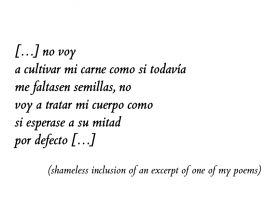The statement that television has a connection to human conscience can be easily dismissed because it is not often discussed, but the reality is that the entertainment industry has deepened and shaped the way humans think, value and feel.
Lauren Zalaznick’s argument for why a conscience exists is explained in her 2010 TED Talk when she states that “television directly reflects the moral, political, social and emotional need states of our nation” and further goes on to conclude that “television is how we actually disseminate our entire value system.”
Through the research conducted, she traced back 50 years’ worth of television from 1960 to 2010. Surveying about 3,600 American individuals, there were two different key aspects that stood out in regards to the human conscience: the inspiration state and the moral ambiguity state. The inspiration state, she defined as television, shows that it has the power to uplift others and the ability to makes others feel more positive about the occurrences of the world. Moral ambiguity was defined as the television shows in which one is unable to comprehend the differences between right and wrong. Taking these two concepts, television shows for 50 years were able to influence the way the human conscience unfolded. Through the major historical events that took place during the course of this time such as the Cuban Missile Crisis, the assassination of U.S. President John F. Kennedy, the Civil Rights Movement, the Vietnam War, the assassination of civil rights leader Martin Luther King Jr., Watergate, etc., the human population was able to categorize the series of these events into a state of inspiration or moral ambiguity with their conscience working to allow emotions to be felt and values to be analyzed. While these surveys were targeted primarily towards American citizens, the questions asked were a wide array of television shows that were broadcast globally. Therefore it was inferred that the survey results paralleled the rest of the global population’s opinions.
Today, the 21st century has seen a different transformative shift than that of the 20th century, however, the effects towards the human conscience are similar.
The start of the 21st century was unlike any other. It was completely changed with the revolutionary creation of the Internet. Fewer people found themselves questioning the inspiration and moral ambiguity, but rather looking for the facilitation of access. Television was shifting significantly with the pick up of more humorous shows such as “Friends,” Cheers,” and “Seinfeld.” Then the course of historical events such as the terrorist attacks of 9/11 in the United States, the war that followed it, etc., shifted the way security and access worked globally. In the past decade events such as the Syrian War, the War on Terrorism, numerous natural disasters, the uprising in tragic school shootings have all been reflective in television and the entertainment industry. The significant difference today is the easy access to streaming through smart devices. Websites like Netflix and Hulu have allowed for the global population to have more options. One is no longer relying on a schedule provided by TV providers, but rather can look up what they wish to see and can easily access and even binge on TV shows. Millions of humans are guilty of binging due to the easiness companies like Netflix and Hulu have made it to view shows. One other complete game changer is smart devices. Televisions have evolved immensely that they are now integrated with several features that make access to this industry that much easier. It is accessible through a TV, a laptop, a smartphone, etc. It is unpredictable how much more it will evolve, but the human conscience that is globally shared has shifted through access and the crave of wanting more.
While the questioning of the inspiration state and the moral ambiguity state are still existent in a rather unknowingly sense, they continue to be shaped through the human’s desire for more. If one gets hooked on a series that can be easily accessed through numerous providers, it is a natural instinct to seek more and more until one is fully satisfied. If the human population is globally wanting more, the feelings and values that arise from their experience with their favored television shows, their conscience continues to be shaped as they are fulfilling themselves with what the show provides. With the belief that everything has a purpose, the shows that are watched provide something different for everyone, thus continuing to shape in one way or another the way one thinks, values and feels while also considering the inspiration and moral ambiguity states.




